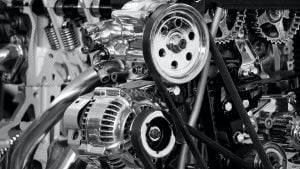Caring for Your Car’s Suspension System


Caring for Your Car’s Suspension System


Introduction
The suspension system is a vital component of your car that ensures a smooth and comfortable ride. It consists of various parts, including springs, shock absorbers, struts, and control arms, all working together to absorb road impacts and maintain stability. Caring for your car’s suspension system is crucial for both your safety and the longevity of your vehicle. In this article, we will provide you with a comprehensive guide on how to properly maintain and care for your car’s suspension system.
Regular Inspections
Regular inspections are essential to identify any potential issues with your car’s suspension system. Here are the key components you should check:
Springs
Inspect the springs for signs of corrosion, damage, or sagging. If the springs appear worn out or sagging excessively, it may be necessary to replace them.
Shock Absorbers/Struts
Check the shock absorbers or struts for leakage, excessive bouncing, or uneven tire wear. Damaged shock absorbers or struts should be replaced promptly to ensure optimal performance and stability.
Control Arms
Inspect the control arms for any signs of wear or damage. Look for cracked bushings, loose ball joints, or excessive play. If you notice any issues, have them repaired or replaced as necessary.
Maintenance Tips
Proper maintenance of your car’s suspension system can significantly extend its lifespan and enhance its performance. Follow these tips to keep your suspension system in top condition:
1. Drive with Care
Avoid rough roads, potholes, and speed bumps whenever possible. These road hazards can cause significant stress on your suspension system. Drive carefully and reduce your speed when encountering rough terrain to minimize the impact on your suspension.
2. Regularly Clean Undercarriage
Cleaning the undercarriage of your car regularly helps remove dirt, salt, and debris that can accelerate corrosion. Use a hose or pressure washer to thoroughly clean the undercarriage, paying close attention to the suspension components.
3. Maintain Proper Tire Inflation
Maintaining the correct tire pressure is crucial for optimal suspension performance. Underinflated or overinflated tires can put unnecessary strain on the suspension system. Refer to your vehicle’s owner’s manual for the recommended tire pressure and check it regularly.
4. Rotate and Balance Your Tires
Regularly rotating and balancing your tires can help distribute the weight evenly, reducing the strain on your suspension system. It also promotes even tire wear, which contributes to a smoother ride.
5. Get Regular Wheel Alignments
Proper wheel alignment is essential for maintaining the overall health of your suspension system. Misaligned wheels can cause uneven tire wear and put additional stress on suspension components. Schedule regular wheel alignments to ensure everything is properly aligned.
6. Lubricate Suspension Components
Some suspension components, such as control arm bushings, require periodic lubrication. Consult your vehicle’s manual or a qualified mechanic to determine the recommended lubrication points and use appropriate lubricants.
7. Listen and Feel for Warning Signs
Pay attention to any unusual noises, vibrations, or handling issues while driving. Clunking sounds, excessive bouncing, or uneven tire wear may indicate suspension problems. If you notice any of these signs, have your suspension system inspected by a professional mechanic.
Professional Maintenance
While some maintenance tasks can be performed by car owners, certain procedures require the expertise of a professional mechanic. Here are a few maintenance tasks that should be left to the professionals:
1. Suspension Repairs
If you encounter significant suspension problems, such as broken springs or leaking shock absorbers, it’s best to let a qualified mechanic handle the repairs. They have the necessary knowledge and tools to perform the job safely and effectively.
2. Suspension Upgrades
If you’re considering upgrading your suspension system for improved performance or handling, consult with a professional mechanic. They can recommend suitable upgrades based on your specific needs and ensure the modifications are properly installed.
3. Periodic Maintenance Checks
Even if you perform regular inspections and maintenance, it’s wise to have a professional inspect your suspension system periodically. They can conduct more in-depth assessments, diagnose potential issues, and provide expert advice on maintaining and improving your suspension system.
Conclusion
Caring for your car’s suspension system is crucial for a smooth, comfortable, and safe driving experience. Regular inspections, maintenance checks, and following the recommended tips will help ensure that your suspension system remains in top condition. Remember to drive with care, keep your tires properly inflated, and address any warning signs promptly. By giving your suspension system the attention it deserves, you’ll enjoy a longer-lasting and better-performing vehicle.








